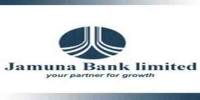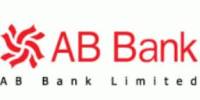Introduction
Bangladesh is one of the largest Muslim countries in the world. The people of this country are deeply committed to Islamic way of life as enshrined in the Holy Qur’an and the Sunnah. Naturally, it remains a deep cry in their hearts to fashion and design their economic lives in accordance with the precepts of Islam. The establishment of Islami Bank Bangladesh Limited on March 13, 1983, is the true reflection of this inner urge of its people, which started functioning with effect from March 30, 1983. This Bank is the first of its kind in Southeast Asia. It is committed to conduct all banking and investment activities on the basis of interest-free profit-loss sharing system. In doing so, it has unveiled a new horizon and ushered in a new silver lining of hope towards materializing a long cherished dream of the people of Bangladesh for doing their banking transactions in line with what is prescribed by Islam. With the active co-operation and participation of Islamic Development Bank (IDB) and some other Islamic banks, financial institutions, government bodies and eminent personalities of the Middle East and the Gulf countries, Islami Bank Bangladesh Limited has by now earned the unique position of a leading private commercial bank in Bangladesh.
Problem
Investment is the action of deploying funds with the intention and expectation that they will earn a positive return for the owner. Funds may be invested in either real assets or financial assets. When resources are used for purchasing fixed and current assets in a production process or for a trading purpose, then it can be termed as real investment. The establishment of a factory or the purchase of raw materials and machinery for production purposes are examples in point. On the other hand, the purchase of a legal right to receive income in the form of capital gains or dividends would be indicative of financial investments. Specific examples of financial investments are: deposits of money in a bank account, the purchase of Bonds or stock in a company.
When money is deposited with an Islamic Bank, the bank, in turn, makes investments in different forms approved by the Islamic Shariah with the intent to earn a profit. Not only a bank, but also an individual or organization can use Islamic modes of investment to earn profits for wealth maximization. Under the profit-loss sharing system of investment financing, the bank receives a variable rate of return as it shares a percentage of profits earned by the borrower. Though there is a consensus as to sharing losses in proportion to capital participation, some of the Muslim economists think that the ratio may vary with the application of different types of modes of financing. Thus, the Profit-loss-sharing system of investment financing may be termed a Variable Return System.
Since the Islamic banking system does not charge interest on any financing agreements, the client neither receives nor pays fixed rate of return while financing his investment. Some popular modes of Islamic Investment are below:
- Mudaraba – partnership between to parties in profit
- Musharaka – partnership between two or more persons or institution
- Bai Muajjal – contract between a buyer and a seller at an agreed fixed price
- Bai Murabaha – contract between a buyer and a seller at a cost plus agreed profit
- Bai Salam – contract between a seller and a buyer at a fixed price in advance
- Hire Purchase under Shirkatul Melk– a synthesis of three contracts : shirkat, ijarah &sale
- Istisna’s sale – a contract in which the price is paid in advance at the time of the contract
- Qard Hasan – a contract in which one of the parties (the lender) places into the ownership of the other party (the borrower) a definite parcel of his property, in exchange nothing more than the eventual return of something in the same value of the property loaned.
Objective
The objectives of the study are given below :
- To get overall idea about the investment process of Islami Bank Bangladesh Ltd.
- To know the investment opportunity created by Islami Bank Bangladesh Ltd.
- To know the replacement of interest with the profit-loss sharing
- To make investment facilities easily available under the Islamic shariah
- To introduce interest free investment operations
- To know smooth allocation of invest able fund and scare financial resources
- To extend the benefits of the investment of Islamic Bank to different sector of the people
- To develop of the country through investment operations particularly in less developed areas
Methodology
The subject matter of this report will be based on primary and secondary sources. This report will be prepared on the basis of the experience gathered during the period of internship. Personal experience gained by visiting different desks during internship period also has to be used.
Data collection
Primary data
- Personal observations and practical works on different desks of the Bank
- Direct interview and conversation with officials
- Official record of Islami Bank Bangladesh Ltd.
Secondary data
- Annual report of Islami Bank Bangladesh Ltd.
- Official documents
- Website of IBBL
Conclusion
Islamic banking, for its profit-loss sharing character, is conceived as more production-oriented and growth promoting than its conventional counterpart. This is because the bank’s earnings are directly linked to the earnings generated from the venture financed by it. Further, replacement of interest with the principle of profit-loss sharing increases the horizon of investment opportunity in an economy. It also promotes efficient allocation of financial resources, ensures equitable distribution of income and promotes stability in the economy. Thus, Islamic banking is efficient from most of the macroeconomic measures of efficiency.















